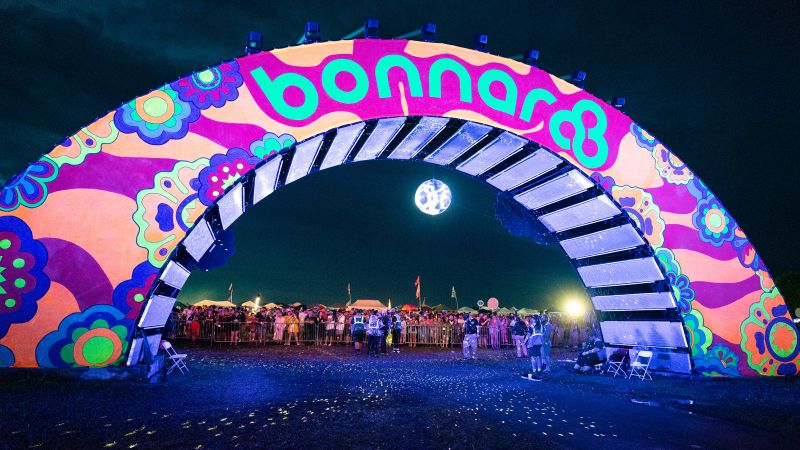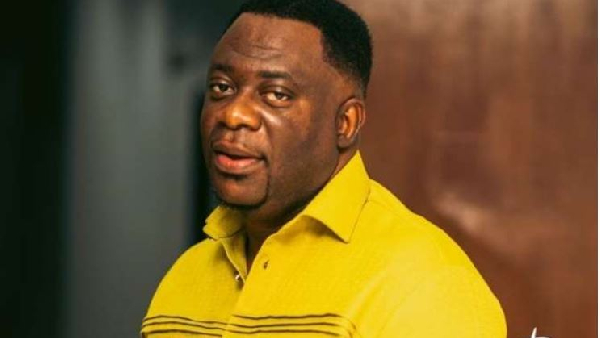Is AI coming to eat Hollywood's lunch?
I believe it was motivational author William Arthur Ward who once said: “If your mind can imagine it, or dream it, you can achieve it.”
As far as digital filmmaking goes, with the recent release of Google AI’s stunning new cinematic video generator, that quote is no longer a far-fetched fantasy. It’s now a certain reality.
And it could spell doom for Hollywood.
In a recent video analysing AI’s impact on Hollywood, writer and theater director, Russell Dobular of Due Dissidence said, “I feel that we’re at a moment with AI that is very similar to the moment we faced when the internet was first commercialised.”
He reminded us how David Bowie, “one of the greatest creative geniuses of his generation”, saw what the internet was going to be before most people did.
Back in December 1999, in an interview with BBC Newsnight, Bowie said: “I don’t think we’ve even seen the tip of the iceberg. I think the potential of what the internet is going to do to society is unimaginable. We’re on the cusp of something exhilarating – and terrifying.”
The interviewer (Jeremy Paxman) furtively suggested: “It’s just a tool though, isn’t it?
“No, it’s not. It’s an alien life form”, Bowie laughed. Then he said, “The content is going to be so different to anything that we can envision at the moment, it will crush our ideas of what mediums are all about.”
More than two decades ago, I remember reading an article in a cinema mag which predicted that, in the not-too-distant future, some (Japanese, Chinese or South Korean) kid (no sinophobia intended) is going make the next Star Wars, without leaving his mom’s house.
He’s going to shoot greenscreen live-action and record dialogue in his garage or basement, and edit, post, grade, score and audio mix the film on his laptop – complete with CGI, VFX and animations.
Well, that lucky kid’s window to Wonderworld is now finally officially here.
In 2002, producer-director Andrew Niccol released a film starring Al Pacino called Simone (aka S1m0ne).
It’s the story of a fading director (Pacino) whose latest film is threatened with closure when his spoilt-brat star walks off the production. Instead of hiring another actress, he uses a new generation CG (computer graphics) programme to digitally create a substitute lead character, Simone (named after the CG programme, Simulation One). As Simone becomes more famous – because the audience thinks she’s real – the filmmaker struggles to keep her non-existence a secret from the public.
That was 2002. Back then, the concept was still sci-fi fantasy. Exactly 20 years later, it materialised.
In 2022, ChatGPT wrote and directed the first AI short film in seven days. Produced by 28 Squared Studios in association with Moon Ventures, the six-minute short is called The Safe Zone.
The story is of a world that’s crumbling since AI seized control of the planet, where three siblings engage in an intense discussion for a spot in the Safe Zone – which is the only place safe from the machines. Only one of member of the family can be admitted into the Zone, those left behind will perish.
Describing the process, producer Richard Juan says: “We got OpenAI’s ChatGPT to write us a full script and direct us in the production. It gave us a full shot list, suggested specific instructions for the director of photography (choice of camera lenses, movements and lighting), recommended wardrobe preferences, and even gave us specific prompts that enabled DALL-E 2 [text-to-image generator] to create a full storyboard.
“The future of filmmaking is changed forever.”
In February this year, conservative commentator and documentary filmmaker Matt Walsh (What is a Woman? Am I Racist?) interviewed Zachary Levi (Shazam) about AI’s impact on the film industry and how it affects the future of Hollywood.
“So AI in the film industry…is this where things are heading? Are we heading to a point where they’re just going to type in a prompt, generate a movie and throw it out there for the masses? Are we going there – and how do you feel about that?” Walsh asked Levi.
“The short answer is, yes,” Levi answered.
“I’ve been banging this drum for a long time”, he said. I believe that in very short order AI will be so good that it will be indiscernible from human content. You now have technology that allows anyone – Studios or Joe Schmo – to sit at home and work with an AI model to then creatively curate whatever you want; a movie, a TV show, a video game, a song – just by prompt.”
“So I think that we [Hollywood] are all in for some really Dire Straits,” Levi added.
At the Google I/O event on 20 May this year, the company announced the release of Veo 3, a new AI video generation model that makes 8-second videos. Bundled into the package are several innovations that separate it from other video generation tools. In addition to photo-realistic video, it also produces audio, dialogue and fully realised soundscapes.
It can also maintain consistent characters in different video clips and users can fine-tune camera angles, framing and movement in entirely new ways.
Within hours of its release, AI artists and filmmakers were showing off shockingly realistic videos that had many social media users dumbfounded by the results.
Since its release, AI filmmakers are already using Veo 3 to create shorts, it’s only a matter of time until we see a full-length feature powered by the model.
One of the most widely shared short films made with Veo 3 is Influenders, created by director Yonatan Dor, founder of AI visual studio, The Dor Brothers. In the movie, a series of influencers react to camera while an unexplained apocalyptic cataclysm occurs in the background. The video has hundreds of thousands of views across various platforms. Similar shorts featuring man-on-the-street videos have also gone viral.
Veo 3 is available to use now with Google’s paid AI plans. Users can access the tool in Gemini, Google’s AI chatbot, and Flow, their AI filmmaking tool.
Donald Trump’s sanctions on Hollywood and the US film industry have spurred fear that Hollywood is about to become for the movie industry what Detroit has become for the motor industry. Producers and studios are panicking about tax breaks and productions being lured away to other states, etc.
Dobular believes Hollywood is missing the crucial point. “This is like talking about the shape of the iceberg from the deck of the Titanic right before you’re about to hit it,” he said.
“They’re completely not getting what is going to wipe out their entire industry. And I have been saying this since they beta tested the first AI module that could generate video from a prompt; this is the end of Hollywood, end of the entertainment industry as we know it.”
“With Google’s Veo 3 we’re pretty much there right now,” he added.
Among the many filmmakers and artists invited to Google’s I/O event to play with and demonstrate the new toys, was visionary auteur director, Darren Aronofsky (Requiem for a Dream, The Whale).
Aronofsky’s venture Primordial Soup has been collaborating with Google DeepMind’s research team and three filmmakers to produce short films that embrace new technology and storytelling.
The director of, among other things, Noah and Black Swan, doesn’t see this AI swell as a threat to artists, creativity and auteurs, but as an augmenting benefit. He compared it to many other new advances and developments in cinema that were initially shunned – like sound and colour – and eventually CGI, VFX and digital cameras.
Addressing reporters at a press conference after the I/O event, Aronofsky said, “ “Filmmaking has always been driven by technology. After the Lumiere Brothers and Edison’s ground-breaking invention, filmmakers unleashed the hidden storytelling power of cameras. Later technological breakthroughs – sound, colour, VFX – allowed us to tell stories in ways that couldn’t be told before.”
“Today is no different. Now is the moment to explore these new tools and shape them for the future of storytelling,” he added.
As Dobular points out, “Aronofsky is right. But what he’s not saying, is…with this new technology, you’ve just eliminated the need for most of the people who would work on a movie.”
Pointing out how easily AI generates simple 2 and 3D animation, Dobular asked: “What do you need an animation studio for? What would you need the people [animators] for? That’s the end of animating as a career.”
“This is going to democratise filmmaking in the way that the internet has democratised media, journalism and content creation,” he added.
Arguably, we are entering a new film production era where raw talent and innovative storytelling, rather than vast financial backing, could become the primary currency of cinematic success. The next Star Wars might not emerge from a sprawling studio lot but from a quiet room, fueled by a single vision, a powerful laptop, and a suite of groundbreaking AI tools.
The magic of filmmaking is no longer confined to the elite; it’s being handed to everyone with an idea and the digital keys to unlock it.
Sure, like Dobular says; “Most of the movies made this way are going to be f-ing terrible…but a few of them are going to be genius. And that is going to completely end the industry in its current form – because there is no barrier to entry anymore.”
A bigger question or concern should be; if everyone is now a Spielberg, everyone is now a genius filmmaker, with just a few keystrokes…what’s so special about that?
Put differently, as Quentin Tarantino once said about (his disdain for) digital filmmaking;
“In a world where you can do anything, nothing means anything.”
Let us know by leaving a comment below or send a WhatsApp to 060 011 021 1.
Subscribe to The South African website’s newsletters and follow us on WhatsApp, Facebook, X, and Bluesky for the latest news.












